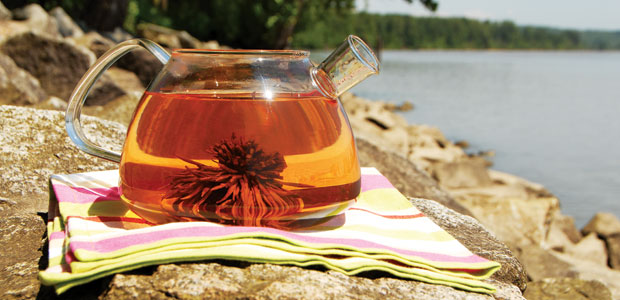Advertisement
Tea-ming with Nutrients
A powerful polyphenol punch

Traditional tea may be a good source of nutrients. Top researchers from around the world have discovered that several teas are so high in antioxidants that drinking three or more cups daily can deliver the same nutrients as our recommended daily servings of fruit and vegetables.
Recent research into tea consumption has seen reduced toxin damage in smokers, increased bone health, cholesterol-lowering effects, cancer-fighting properties, and decreased risk of heart attack. High tea consumption has even been shown to reduce cavities and plaque buildup, and offer immune-boosting and cancer-fighting potential.
Many herbal teas have specific uses for symptom relief; for example, camomile tea can soothe digestive complaints; hawthorn tea can reduce high blood pressure. Teas from the Camellia sinensis plant–the source of white, green, oolong, black, and matcha teas–also show substantial overall health benefits. Switching from java to tea just may be the tastiest health tonic around.
Caffeine-free rooibos tea is also a good choice, with the anticancer properties of this South African tea offering most impressive results.
Senior research scientist at the Medical Research Council of South Africa, Jeanine Marnewick says, “Results from our studies at the Program on Mycotoxins and Experimental Carcinogenesis in South Africa, and others from around the world, strongly suggest that the consumption of rooibos tea may play a role in improving our overall health, and may also alleviate the burden of cancer.”
So how much tea do we need to drink to equal the nutrients we would normally gain from our daily servings of fruits and vegetables? To get the full benefits of tea’s antioxidant and high phenol activity, research suggests that you take three to five cups daily (without milk). For once, overdoing it has its perks.
Recipes




